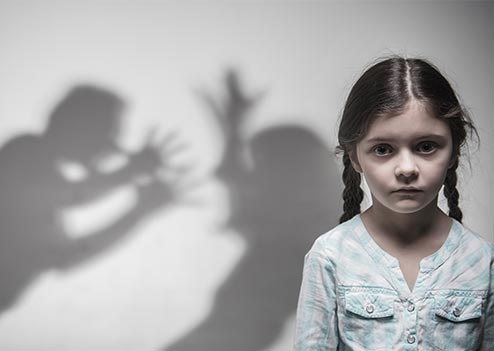
The Effects of Domestic Violence on Children and Families
December 13, 2021 4:44 pm Leave your thoughtsHow does exposing children to domestic violence affect them and the family? This situation has both short-term and long-term effects on children. Regardless of their age, children are impacted. So, if you’re wondering, “Will being around domestic violence affect children and their family?” the answer is yes. Here’s how:
- Young children: Preschool-aged children who witness domestic violence often revert to prior behavior, such as bed-wetting and whining, that are more typical for even younger kids. They may also struggle with falling asleep or staying asleep, or have bad dreams. Separation anxiety is also common.
- Elementary kids: School-aged children may blame themselves for the abuse. Their self-esteem usually suffers. They often avoid participation in school activities and may have few friends. Their grades also suffer. Stomach problems and headaches are also common problems.
- Teenagers: Often, teens who witness domestic violence will engage in risky behaviors or act out. They may use drugs or alcohol, become promiscuous, get in fights or break the law. Or, they may become withdrawn and depressed.
- Adults: Once the children grow up, they are more likely to repeat the cycle of abuse. They may enter into abusive relationships or become abusers themselves. They are also at higher risk of health problems as adults. Risks include depression, anxiety, heart disease, mental health issues and obesity.
How to help children who have been exposed to domestic violence
Once you understand that this situation will affect children, the next question becomes, “What now?” If a child has been exposed to domestic violence, what can help prevent the outcomes listed above? The following strategies are key:
- Safety: Kids who have witnessed violence in the home need to feel safe. Talk to your child about healthy relationships. Consider leaving the abusive relationship to create a safer environment for the child.
- Talk: Explain to children that it’s not their fault. Let them talk about any fears they have, or other emotions. Listening and talking will help them process their emotions in healthy ways.
- Explanations: Teach children what a healthy relationship looks like. Explain what a healthy relationship is and what it is not.
- Boundaries: Let kids know that they are to set healthy boundaries. No one has the right to touch them, and they don’t have the right to touch another person’s body either.
- Support: Help children develop a good support system. This might involve other trusted adults, such as a counselor, who can provide support.
- Help: Professional help may be a good choice for children who have experienced domestic violence. A counselor can help them work through the trauma and find healthy ways to cope with stress.
We can help
If your child has witnessed domestic violence, contact Apple Valley Counseling Services LLC. Our center offers safe, personal and affordable counseling and resources for those dealing with domestic violence. We are a family counselor, aftercare counselor, DOT substance abuse counselor and rehab counselor. Please feel free to stop by our facility or give us a call. We are available 24/7 at 509-452-1000.
Categorised in: Domestic Abuse
This post was written by admin
